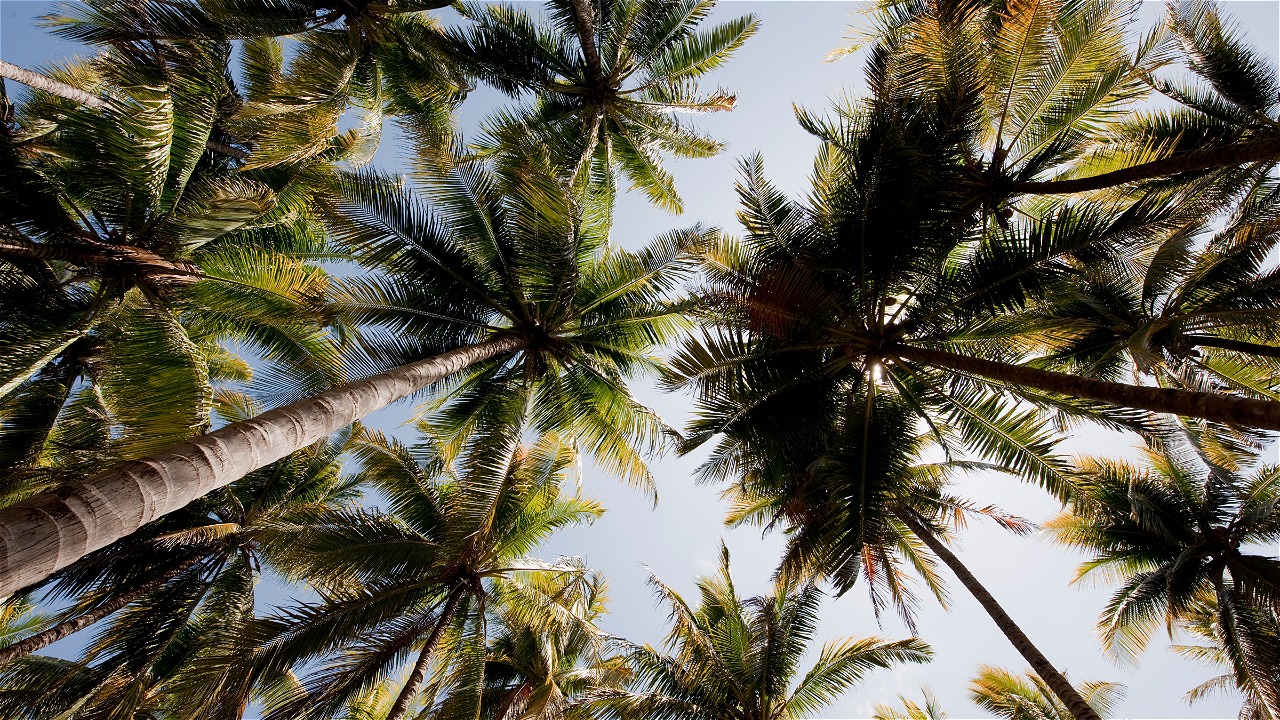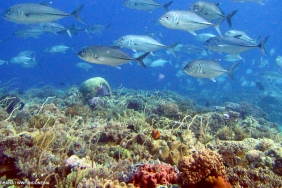GETTING TO KNOW SARANO WALI, THE WAKATOBI CUSTOMARY SYSTEM (2)
Authors: Rinto Andhi (Social Development Coordinator) and Sadar (Marine Conservation Outreach and Awareness Officer), WWF-Indonesia Program Southern Eastern Sulawesi Subseascape/SESS
Wakatobi, a National Park conservation area at the heart of the world's coral triangle, not only has high marine biodiversity, but also a maritime culture that is still upheld by the ethnic groups that inhabit it. One of the maritime cultures that still exists and runs today is the customary area sara. Of all the sara systems, Sarano Wali - the system of worship owned by the Cia-Cia ethnic group - is one of the most effective sara with its adherence to customary rules. (Read also Reinforcing Sarano Wali on Binongko Island, Wakatobi)
What's Interesting about Kaombo as a Coastal Customary Governance System?
Kaombo is a natural resource governance system in the Sarano Wali worship area. Kaombo applies to the conservation of natural resources and the biota that live within them, including protected forests, mangroves, coastlines and coral reefs. The sarano wali dense area has a coastal kaombo with an open-close harvest system. According to the oral tradition of culadha tape-tape, kaombo is a prohibition order that should not be violated. If violated, the violator will get bala or punishment as a result of prayers from traditional leaders. The philosophy of kaombo in the customary law of Sarano Wali is tolu mingku we'eli- the law of three human moral actions-which is still rooted in the Sarano Wali custom. Sourced from the cognitive values of pato mea karonto mai kala'a (four sources of justice and truth), pato mea karopu kasoka (four sources of destruction), pato mea hakekati toba (four sources of repentance), which makes the Sarano Wali rule and kaombo still exist today and become the worldview of the ethnic community of Cia-cia Binongko.
Kaombo as Coastal Governance Based on Indigenous Wali
One of the work plans of the ssocial development team of WWF-Indonesia Southern-Eastern Sulawesi Subseascape/SESS program in Wakatobi National Park is institutional strengthening of community-based coastal and marine resource governance. Since the beginning of 2015 until mid-2016, there have been several activities carried out to support the work plan: 1) Identification of sacred sites; 2) Identification of sarano wali and kaombo; 3) Participatory mapping of kaombo areas; and 4) Strengthening of customary institutions Sarano Wali with the aim of encouraging the implementation of kaombo by the guardian indigenous community.
Talking about kaombo, is inseparable from the customs and customary institutions that run in the community. Two important things in kaombo are territoriality (territorial) and the social value system attached to nature. Territoriality is an obvious element because kaombo is spatial (regional) and is a social system institution that closely attaches social activities to its ecosystem environment. For the community, kaombo is a social, economic, and ecological function. The boundaries of the kaombo are drawn through joint deliberations of the community, imam (religious leader), village government, and lakina (traditional leader) known as the three-stove-or dapura governance system (as called by Lurah Wali, Mr. Jaenuddin).
The initiation of the revitalization of kaombo pesisir was established in February 2015, located at the end of the village area of Kelurahan Wali and neighboring Haka Village. The reason the kaombo was reactivated was because marine products were becoming scarce, as well as the decline of coastal biota compared to previous years. The kaombo coastal area is set at the end of the village so that it does not interfere with the flow of community sea transportation and women's fishing activities in meti-meti.
The kaombo that has been agreed upon by the dapura leadership together with community representatives is then informed to the wider community through oral messages to both mothers and children in Wali Village. In the rules of kaombo there is also the imposition of sanctions: light sanctions, medium sanctions in the form of warnings, and heavy sanctions in the form of fines. The applicable fine system is bhoka (1 bhoka is equal to Rp24,000,-).
(continued)





